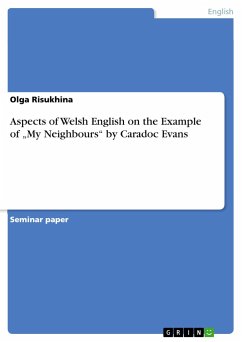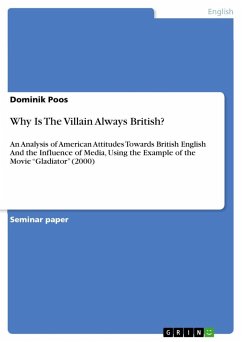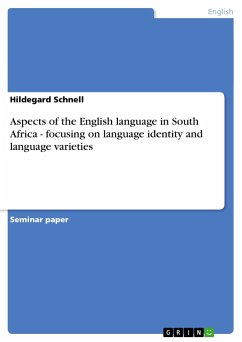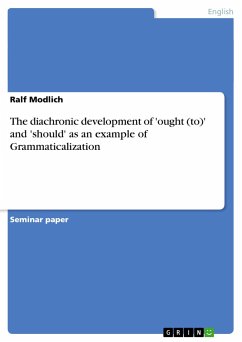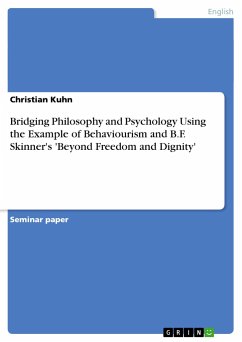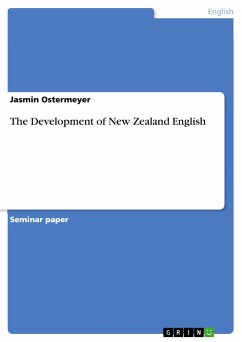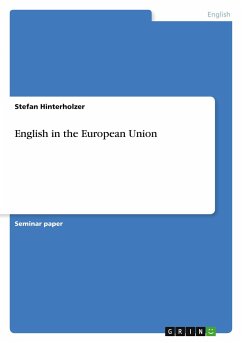Seminar paper from the year 2007 in the subject English Language and Literature Studies - Linguistics, grade: 1,7, Dresden Technical University (Institut für Anglistische Sprachwissenschaft), course: Proseminar "Varieties of English", language: English, abstract: Long before the English language became dominant on the British Isles Celtic languages were the main method of communication. But since the middle of the nineteenth century they had been losing their influence due to the rapid process of anglicisation. And soon Celtic languages could only be found in the western regions of the British Isles. The situation has not changed until now.Among the Celtic languages Welsh is considered to be the most survived one. Welsh is also the oldest language in Britain. It roots back at least 2.500 and possibly 4.000 years. Nowadays about 21 per cent of the population in Wales speak Welsh as their mother tongue. The native speakers of Welsh can be found mostly in the northern and western regions of the country whereas southern and eastern parts are throughout English speaking communities. ("History of the Welsh Language") English which is spoken in these areas is influenced to some degree by Welsh. And as a result English spoken in Wales can be referred to as a dialect of the standard English language.Welsh English has its own specific features, which differentiate this variety from other dialects of English. These features can be found on all linguistic levels, on phonetical, morphological, grammatical, syntactical. Welsh English is supposed to be very peculiar pnonetically having its well-known song-form intonation. At the same time a great range of differences are to be noticed in grammar, syntax and vocabulary usage. And so the aim of this paper is to show and analyse the grammatical, syntactical and lexical aspects of Welsh English on the example of a literary work written in this variety. For this purpose the collection of short stories "My Neighbours" by Welsh novelist of the 20th century Caradoc Evans was chosen. These short stories are full of dialogues, which present the everyday spoken Welsh English. There is no clear reference to a particular region where protagonists originate from. Conversations in the text comprise language peculiarities that can be found in different parts of Wales. Apart from the linguistic analysis some information on history and the present-day status of Welsh and English in Wales is given.Due to the fact that Caradoc Evans as a Welsh writer is mainly known in Wales, and printed sources about himself and his creative life are to be found mostly in Wales, the information about the author and his works is based to a great extend on Internet sources.
Hinweis: Dieser Artikel kann nur an eine deutsche Lieferadresse ausgeliefert werden.
Hinweis: Dieser Artikel kann nur an eine deutsche Lieferadresse ausgeliefert werden.

